7 flowers to plant in August – and reap the rewards with early blooms next spring
Hardy annuals to plant this month, along with tips for where and how to sow seeds
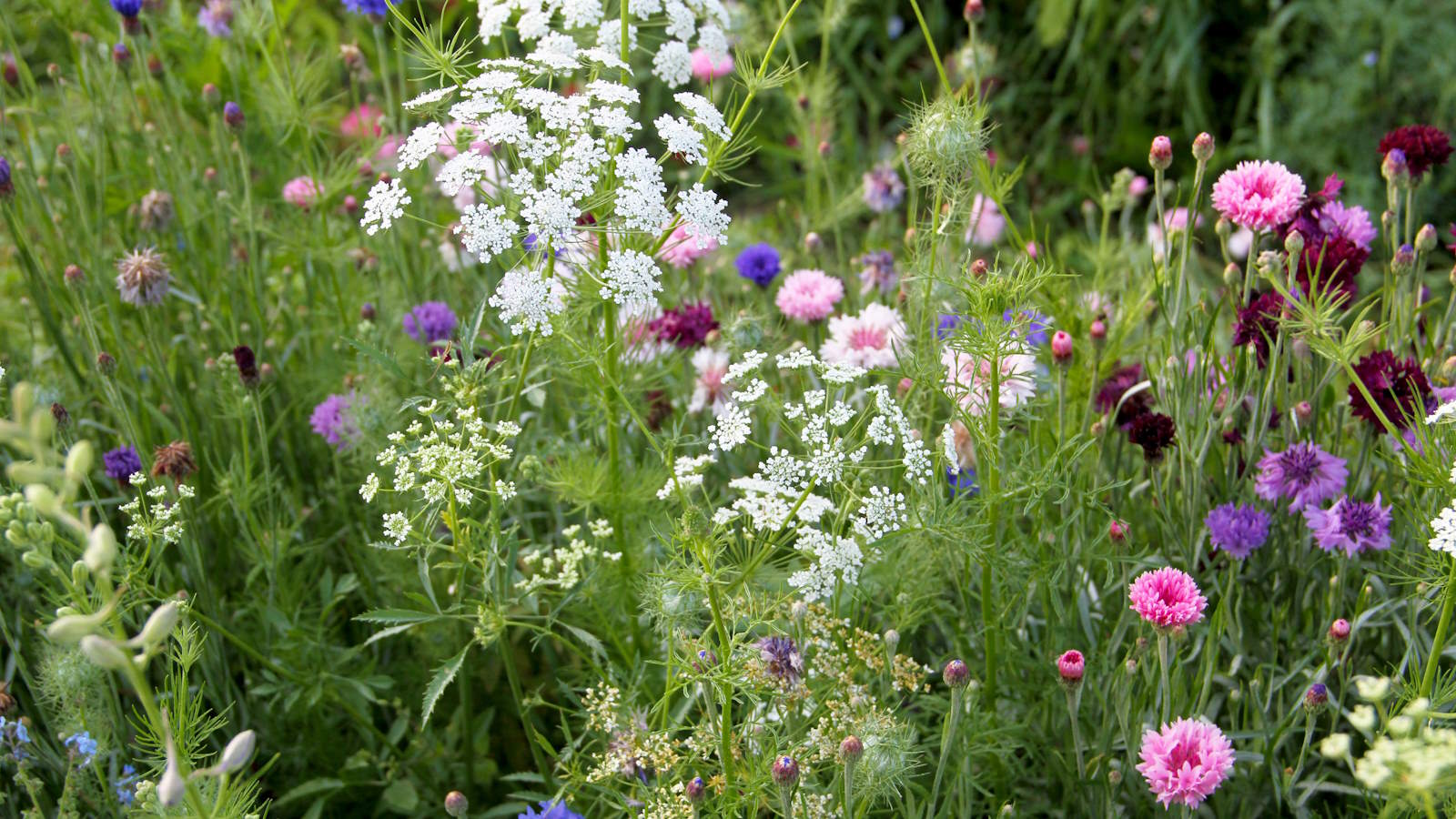

Your garden will be awash with color, texture, and activity in August, but it is not too soon to start planning. While your summer days will be filled with watering, deadheading, and simply admiring the blooms, there are proactive steps you can take this month to boost next year’s displays.
That includes sowing hardy annuals, and some biennials, in August that will fill your garden with earlier displays of blooms next spring. Combining sowings this month with further spring sowings can extend the flowering season and give you glorious color for many months.
So, what can you plant in August to make that vision a reality? There is a great selection of hardy annuals to choose from, however, to give a helping hand here are seven to sow this month that we are fans of.
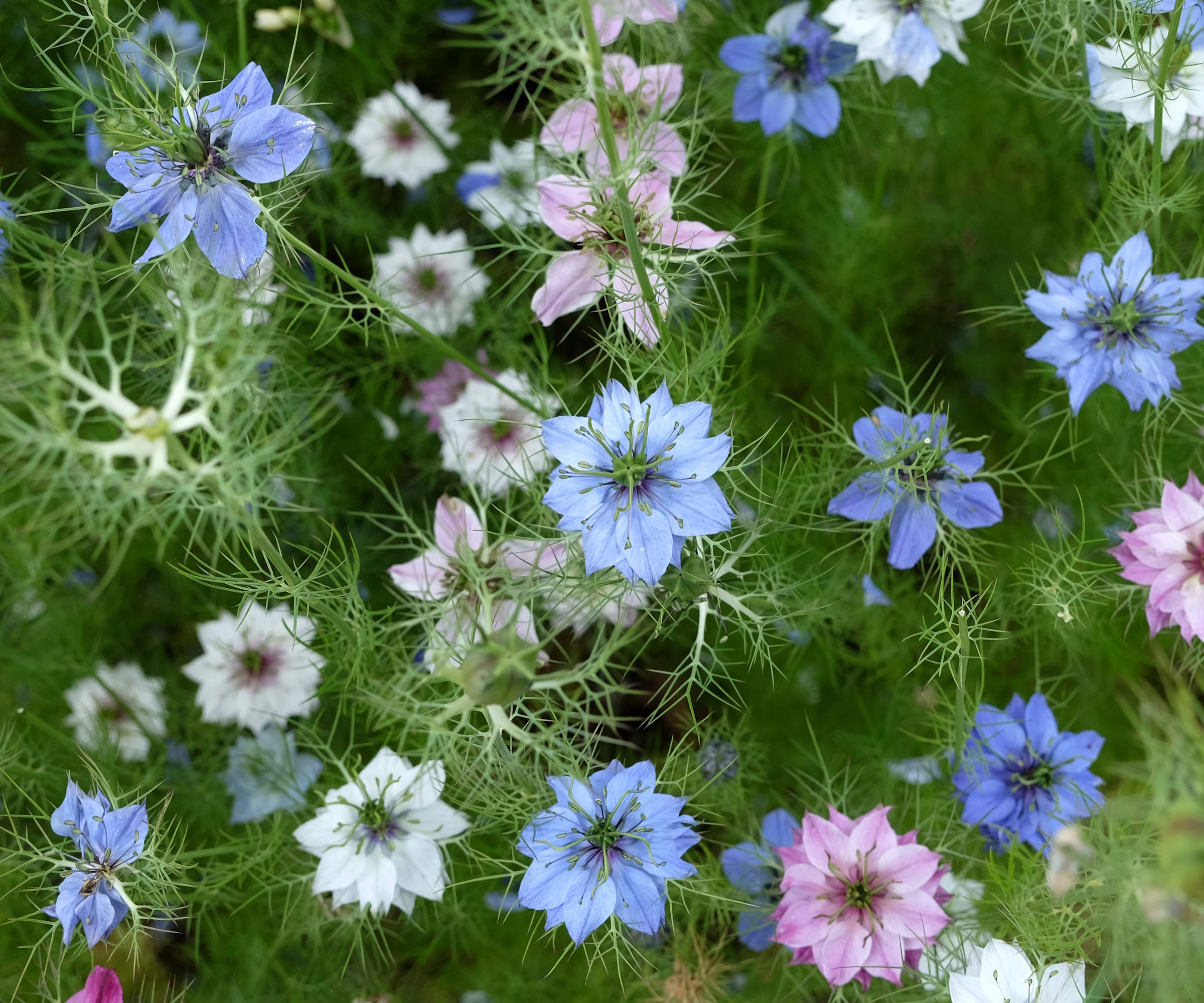
7 flowers to plant in August
Hardy annual flowers can be sown indoors or outdoors in August as part of a summer gardening checklist, and the choice may depend on your garden setup and personal preferences. The plants will be able to overwinter, though may require protection during the winter months in colder US hardiness zones.
1. Antirrhinum
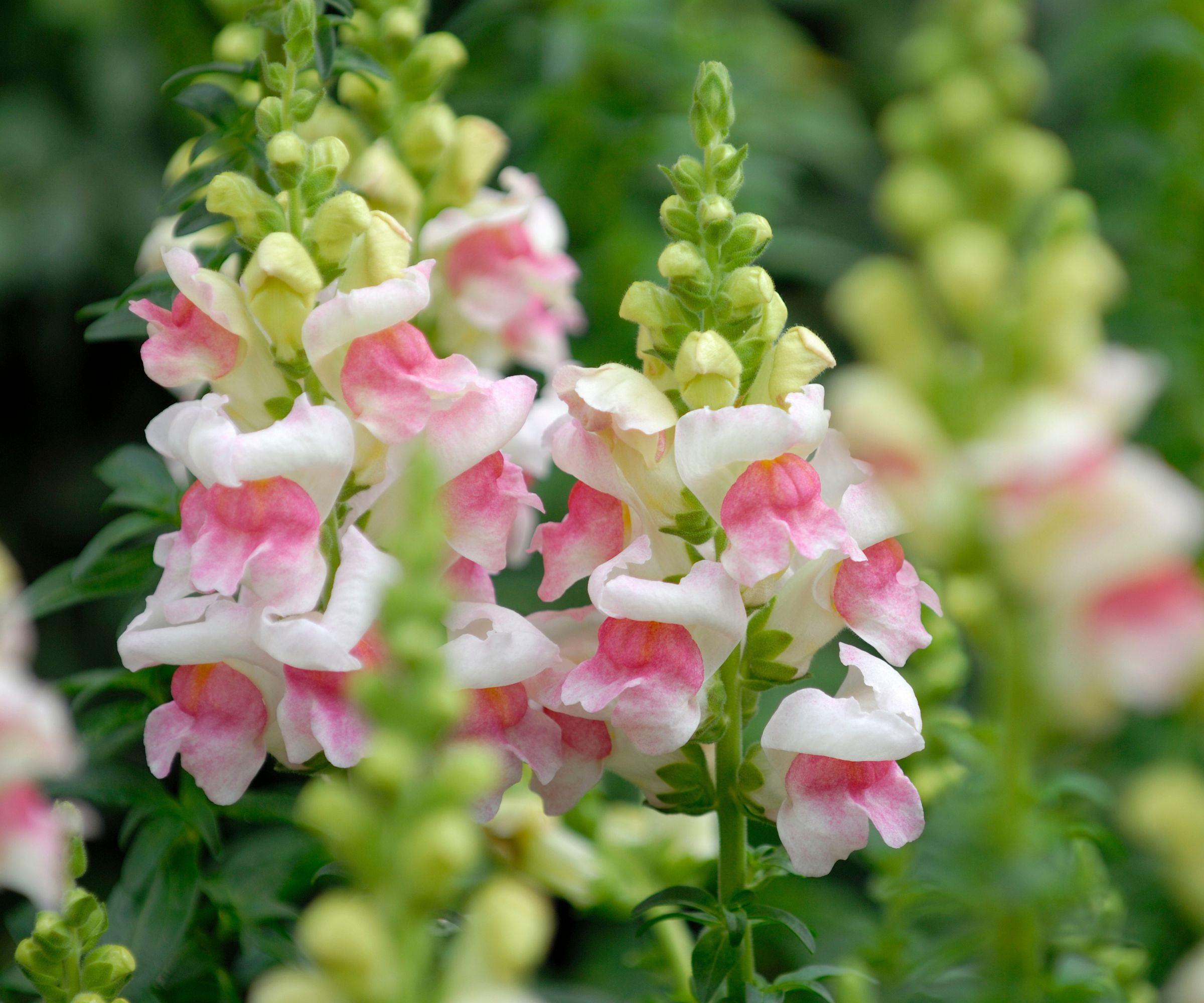
Antirrhinums, also known as snapdragons, can cope with a winter cold and a sowing of this hardy annual in late August produces strong plants that bloom in May. Antirrhinums are available in a wide range of colors and the distinctive cottage garden flowers, which give them their other monikers of dog or lion’s mouth, appear prolifically.
Sow seeds indoors late in the month at temperatures of 61-64℉ into seed trays or modules and cover them with a small amount of compost. Transplant seedlings into the garden at least six weeks before the first frost and they should develop a quick root network to see them through winter.
Snapgradons will start flowering in May and you can keep snapdragons flowering through deadheading and feeding. You can get snapdragons in a range of colors or choose a mixed type such as the Liberty Classic Series Mix, available at True Leaf Market, that gives blooms in shades of red, yellow, pink, and white.
2. Larkspur
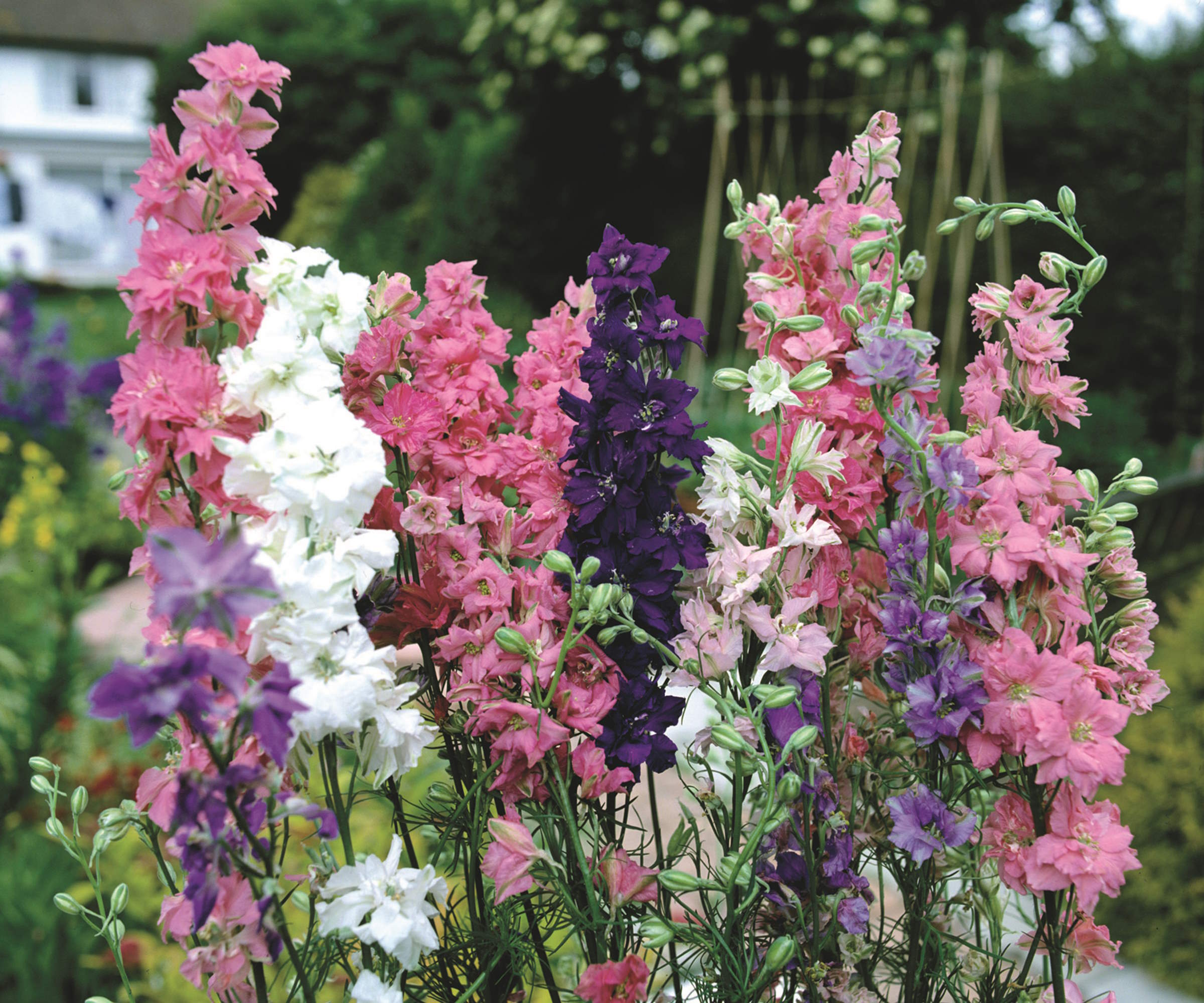
Larkspur produces tall flowering stems in shades of blue, pink, white, and red and these blooms are rich in nectar and great flowers for bees. They are adored worldwide as cottage garden plants, with Martha Stewart a big fan of larkspurs showcasing her purple blooms on Instagram.
Larkspur seeds can be sown outdoors in late August in rows 10-12 inches apart. The seeds benefit from a period of cold stratification, which can be achieved by placing them in a refrigerator for a week or two before sowing. Prepare the soil to a fine tilth ahead of sowing and protect the seedlings from slugs as they emerge.
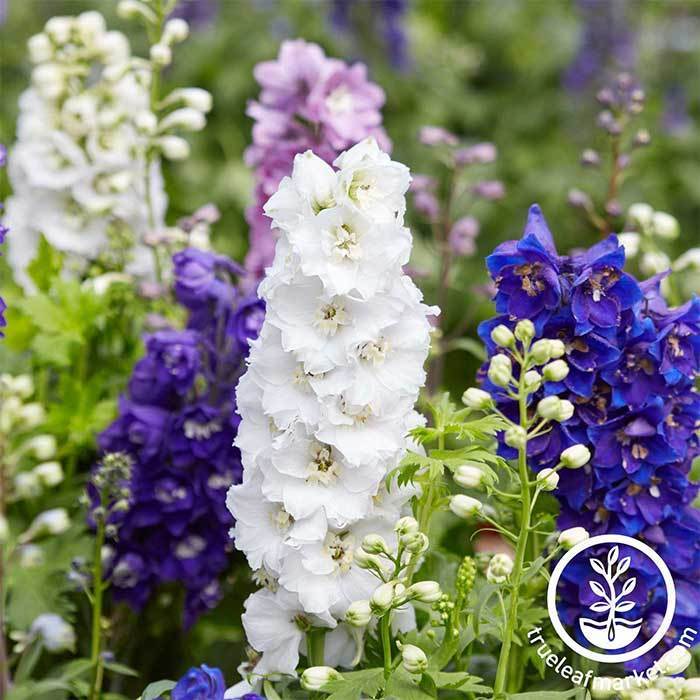
Giant Imperial Mix seeds promise some of the tallest, brightest, and most vivid larkspurs, with elegant spikes flourishing in a seasonal mix of blue, violet, rose, red, lavender, salmon, pink, and white florets.
3. Nigella
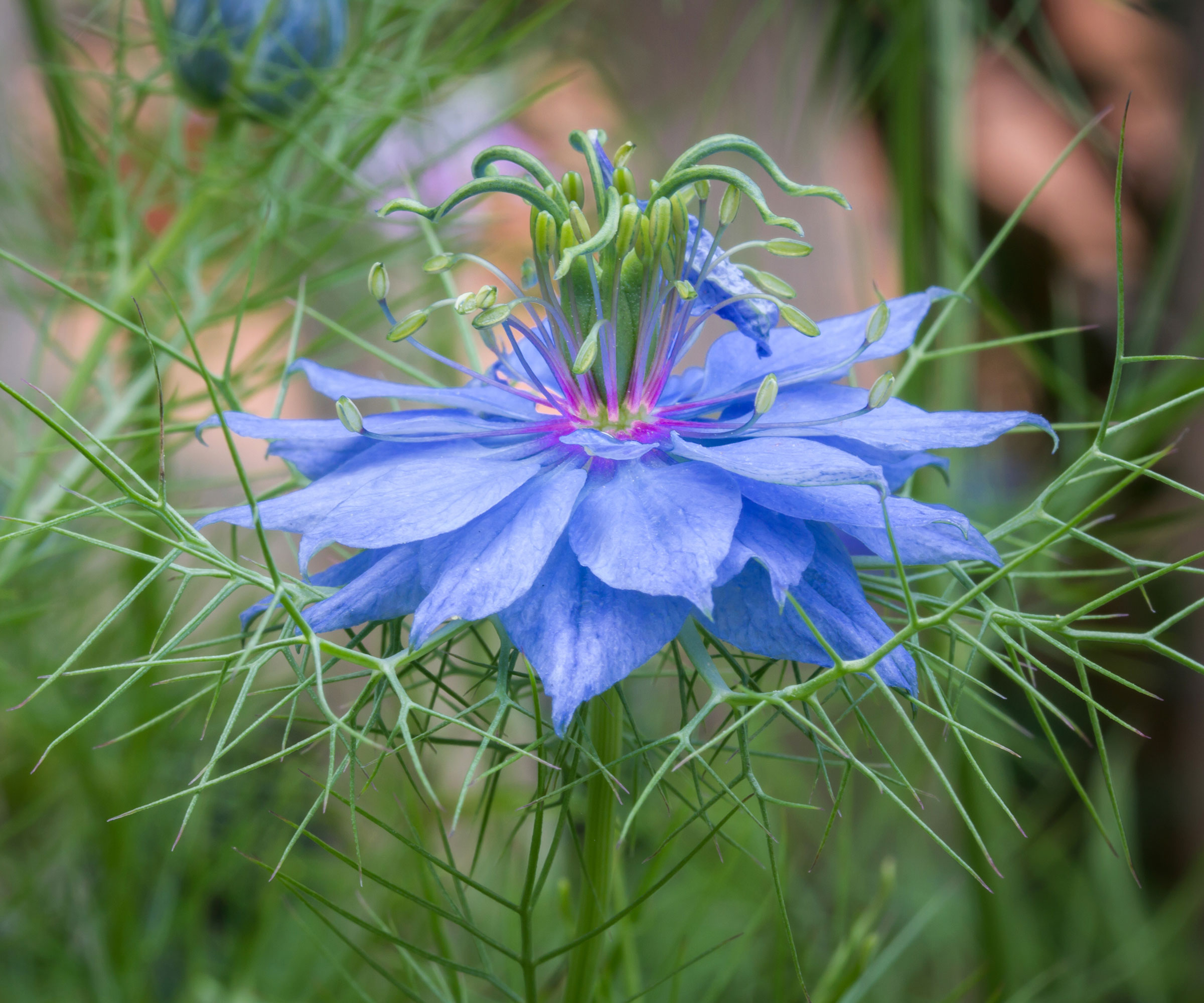
Nigella is a fast-growing annual that will reseed happily around the garden - which is a reason not to deadhead plants. If you want more control around where you grow nigella, such as planning a cut flower garden or using it as a gap filler in flower beds, the seeds can be sown in August and they will germinate quickly.
Nigella seeds sown directly into the soil in August or September will start to bloom from May onwards next year. Plant the seeds half an inch deep in rows, or scatter the seeds and cover them with soil for a more natural effect, and keep them moist.
Thin the seedlings to around 5-8 inches apart as they germinate and plants will tolerate winter cold and frosts ready to dazzle come spring and early summer. A great option to sow is this Nigella seed mix at Amazon that produces blooms in shades of red, white and blue.
4. Lunaria
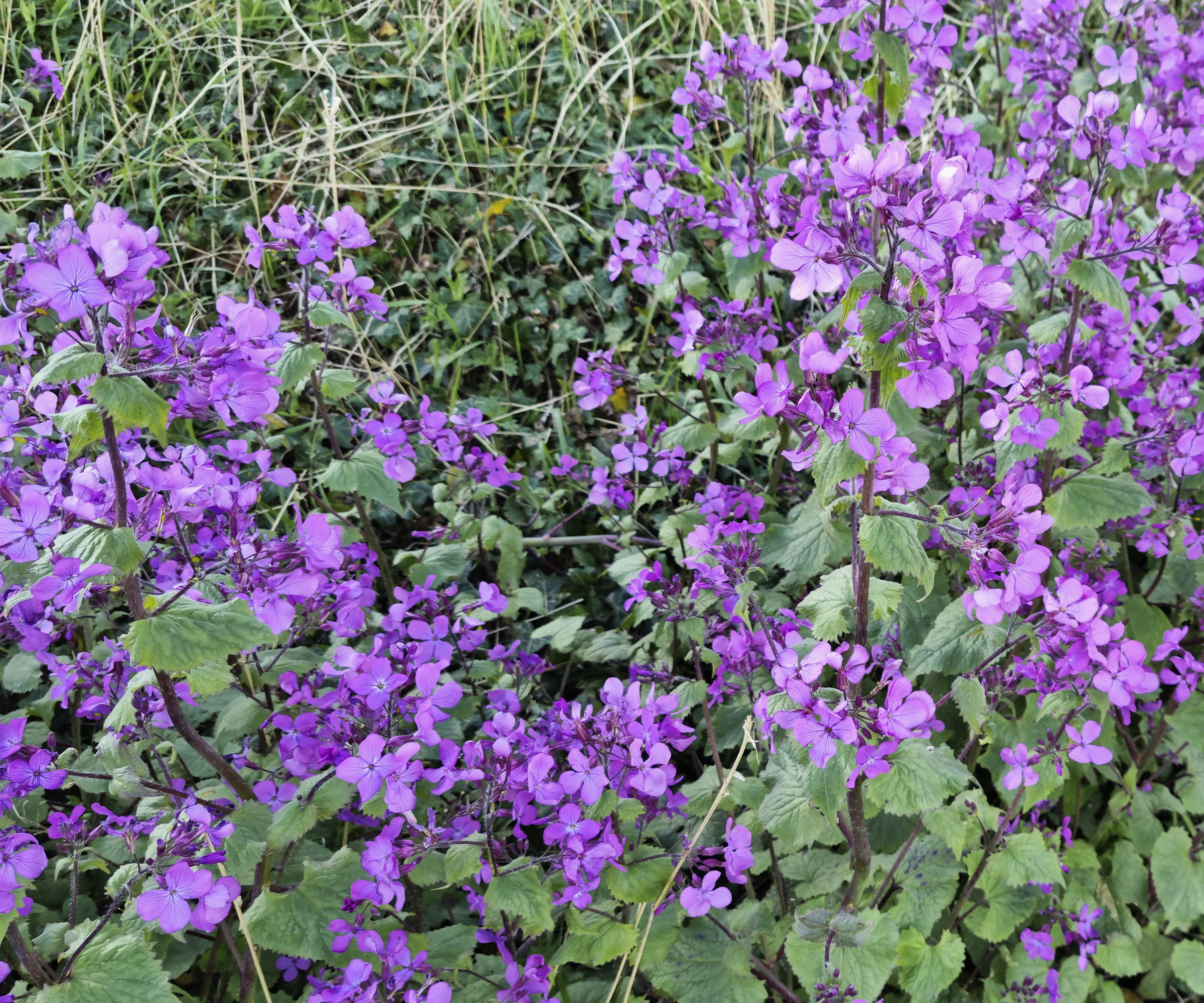
Lunaria, also commonly known as honesty, is a very hardy biennial plant that can get established from a sowing in August to flower in next spring and summer. The flowers are white or purple, depending on the variety, and honesty continues to impress even after flowering thanks to its fabulous seedheads.
Sow seeds indoors in late summer, scattering them over a seed tray filled with compost. The seeds will germinate quickly in around 7-10 days and want to be pricked out and grown in individual pots once large enough to handle. Plant the young seedlings into the yard at least 12 inches apart in early fall to establish roots before winter.
5. Queen Anne’s Lace
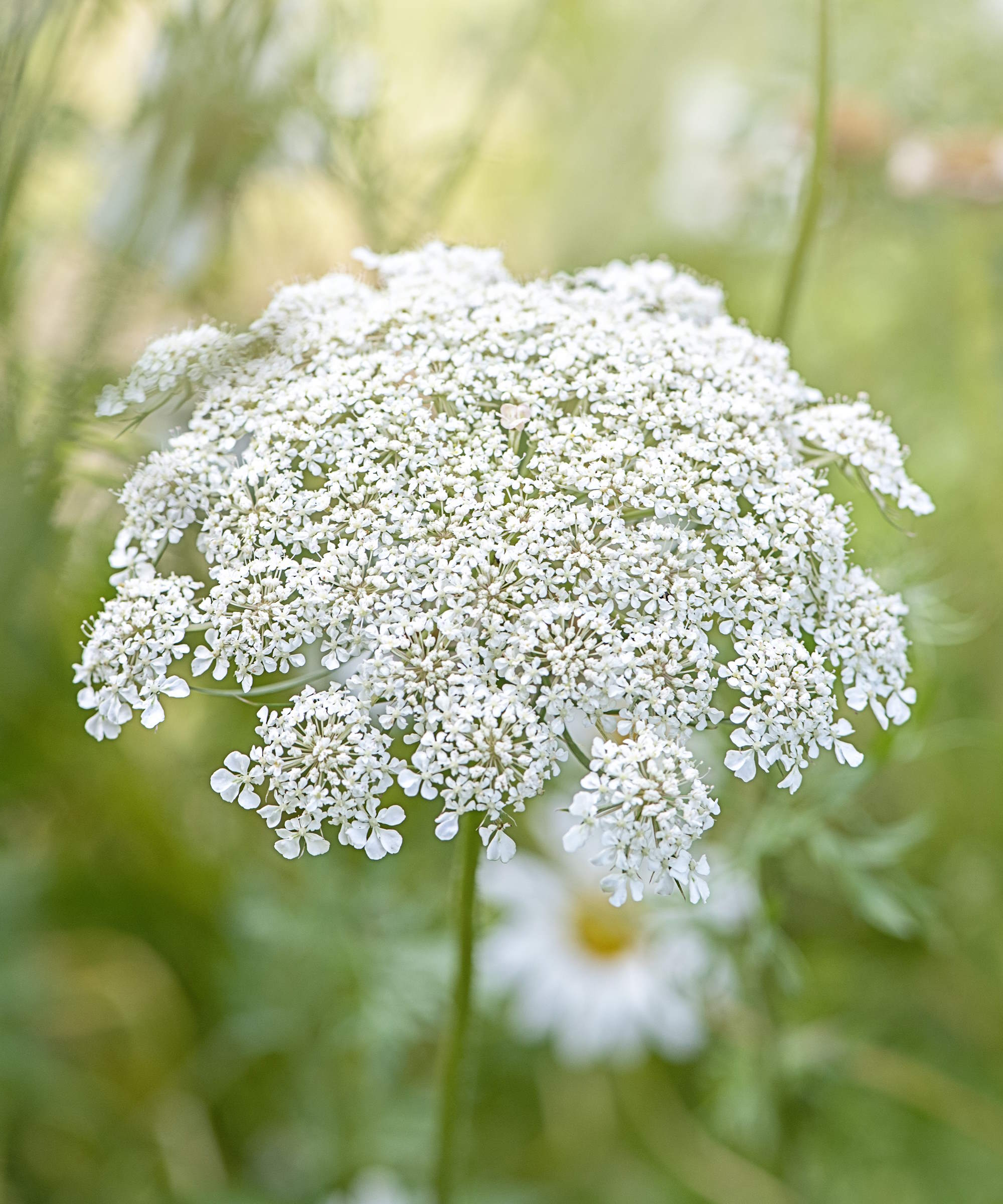
Queen Anne’s lace goes by many names, including Daucus carota and wild carrot, and it is a biennial plant that can also be grown like a hardy annual. It grows between 1-4 feet tall, depending on the variety, and produces small flat umbels of white flowers.
Queen Anne’s lace is commonly seen as part of wildflower garden ideas and a great option to include when planting a wildflower meadow.
Plants sown in August will bloom in the following spring and Queen Anne’s lace can be sown indoors or outdoors this month.
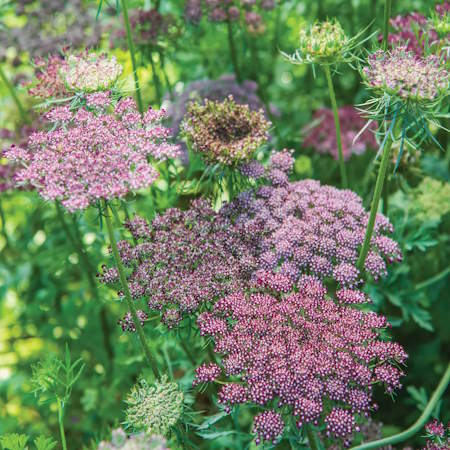
‘Daucus Dara’ is a biennial plant that can be grown as a hardy annual. Sow in June to September for flowers the following year. 'Dara' has long stems topped by large, feathery foliage and a burst of burgundy and blush-pink flowers.
6. Ammi majus
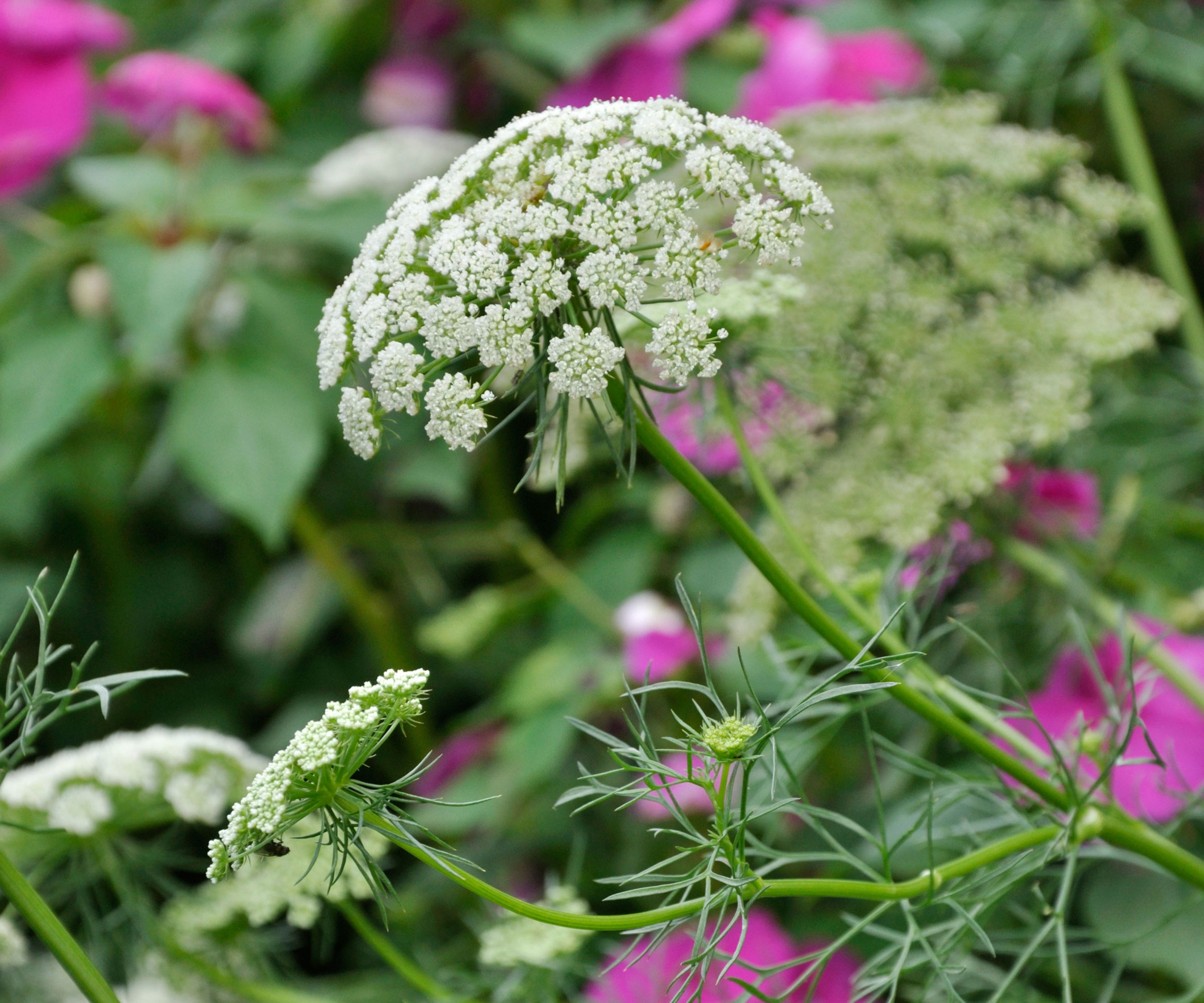
Known as the Bishop’s Flower, Ammi majus is a hardy annual great for white garden ideas thanks to its lace-like and delicate white flowers. Get a head start on next year by sowing them in late August or early September for bigger and stronger flowers than you would get from sowing in spring.
Ammi majus have long taproots, so they need to be sown in deep pots or large modules, or directly into the soil, to minimize any disturbance to that taproot.
Plants sown indoors in late August can be transplanted outside in the fall or grown in large pots in a cold frame to overwinter and plant out into the yard in spring. You can get Ammi majus seeds at Burpee for striking white flowers that are also ideal for cutting.
7. Calendula
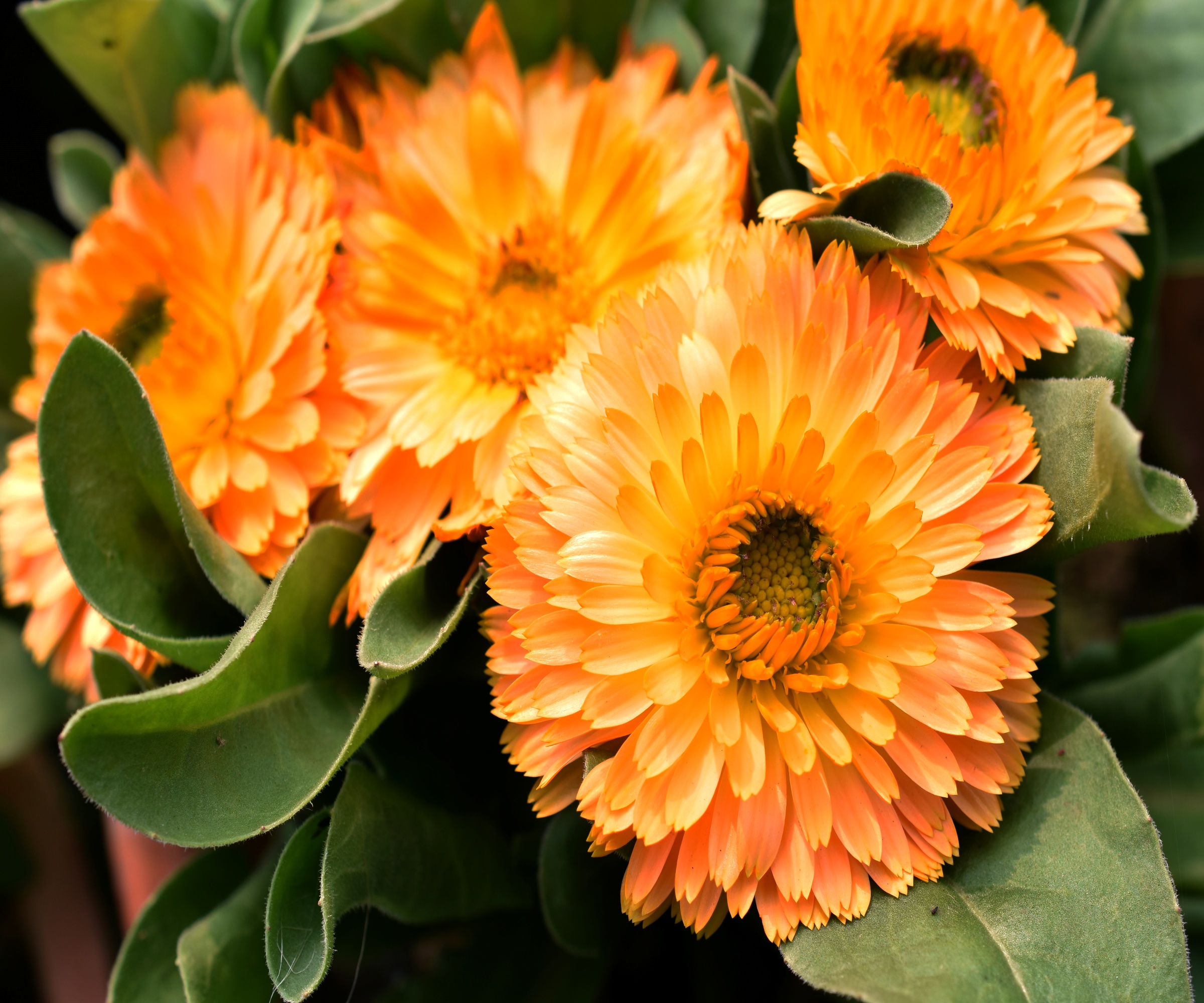
An easy-to-grow annual flower that can provide late summer flowers from an early summer sowing and flowers for spring from sowing later in the season. Sowing calendula seeds in late August or early September will provide bright low-maintenance blooms from May to July.
Sow calendula seeds outdoors where they are to bloom covered with a half-inch of compost, whether it is in rows, scattered over prepared ground, or as part of a container garden. Calendula is easy to grow and the seeds will germinate within 1-2 weeks at temperatures of 70-75°F. The hardy plants will overwinter and burst into flower come spring.
See the range of calendula seeds at True Leaf Market
FAQs
Can I sow wildflower seeds in August?
The best time to plant wildflower seeds is in spring and fall, usually March to April and September to October. This is generally the best time for annual and perennial wildflowers. However, some biennial wildflowers such as foxgloves, wild carrots, and teasel, can be sown in the summer.
It is not just flowers to plant this month, you can also sow vegetables in August in any vegetable garden to provide delicious homegrown produce throughout fall and winter. It includes fast-growing vegetables, such as lettuce or kohlrabi, and cabbages that can provide crops in the winter months.
Sign up to the Homes & Gardens newsletter
Design expertise in your inbox – from inspiring decorating ideas and beautiful celebrity homes to practical gardening advice and shopping round-ups.

Drew’s passion for gardening started with growing vegetables and salad in raised beds in a small urban terrace garden. He has worked as a professional gardener in historic gardens and specialises in growing vegetables, fruit, herbs, and cut flowers as a kitchen gardener. That passion for growing extends to being an allotmenteer, garden blogger, and producing how-to gardening guides for websites. Drew was shortlisted for the New Talent of the Year award at the 2023 Garden Media Guild Awards.
-
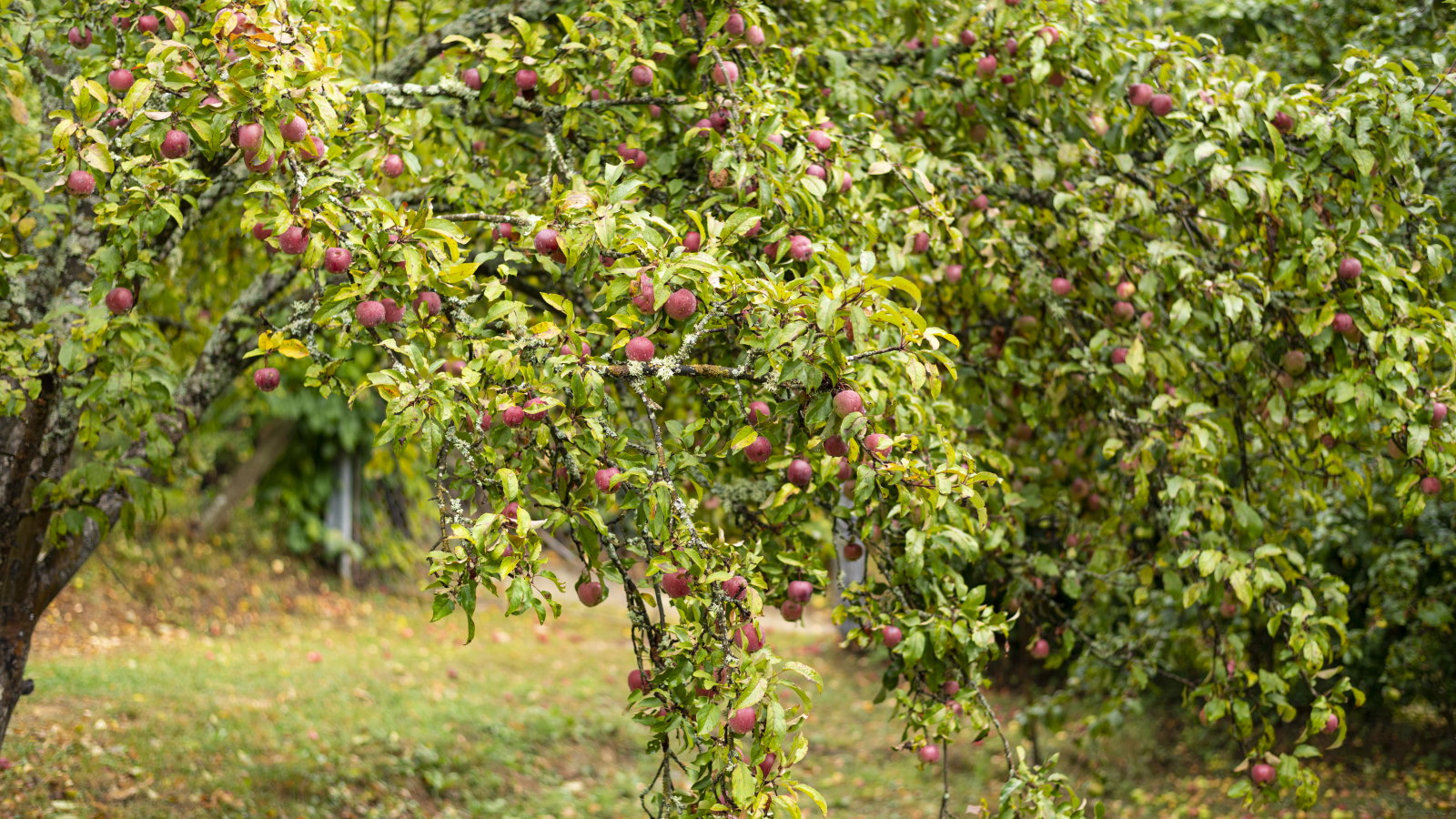 Plants never to grow next to fruit trees
Plants never to grow next to fruit treesExpert advice on which plants to keep away from fruit trees to encourage a healthy harvest
By Jacky Parker Published
-
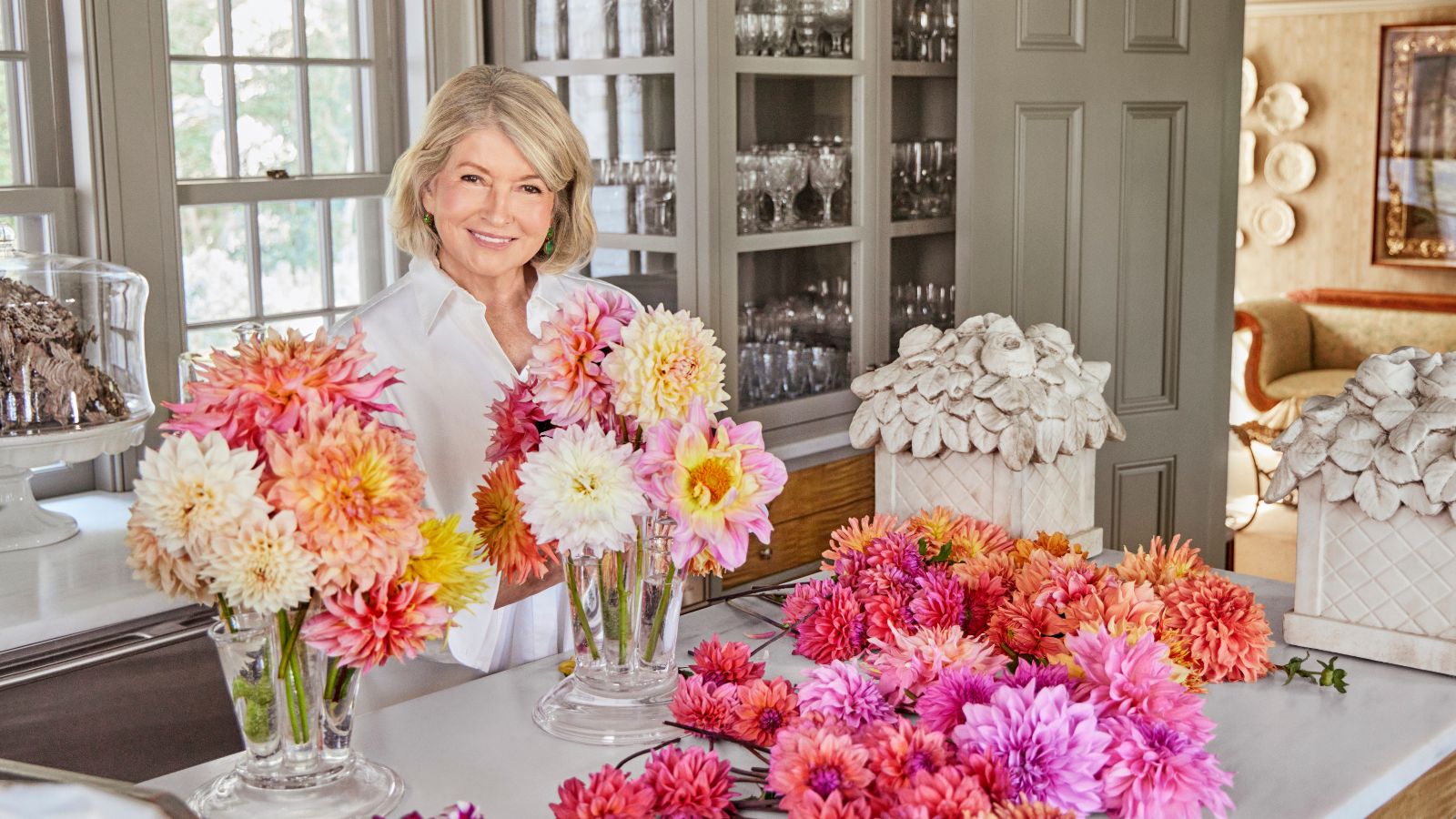 Martha Stewart's tips for arranging daffodils are unbelievably simple and effective – it's the only flower advice you need this springtime
Martha Stewart's tips for arranging daffodils are unbelievably simple and effective – it's the only flower advice you need this springtimeMartha shows us that we can create gorgeous bouquets of this seasonal flower by simply trimming the stems and placing them in specific vases
By Hannah Ziegler Published
-
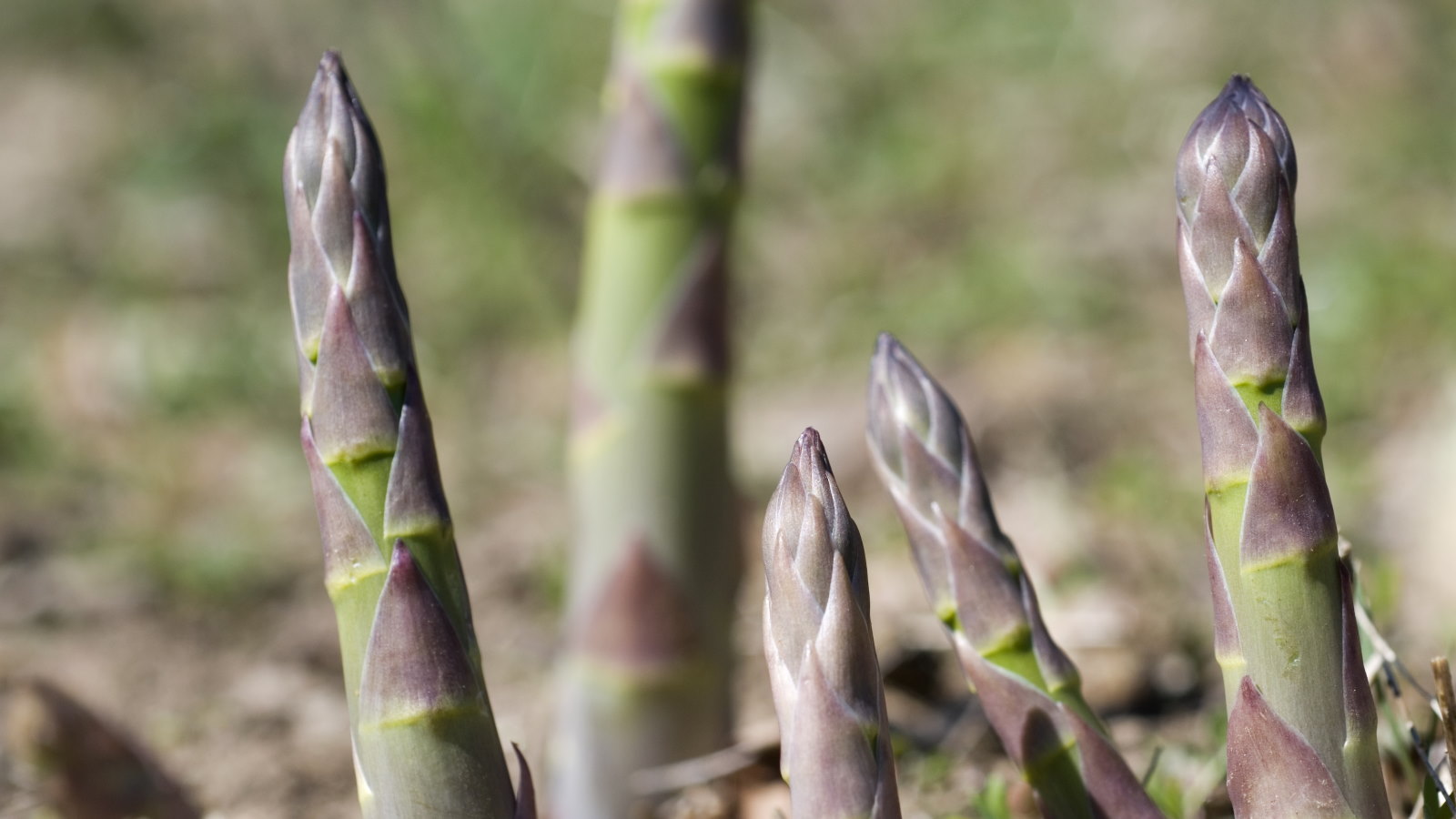 When and how to divide asparagus – expert tips to rejuvenate older plants for better yields
When and how to divide asparagus – expert tips to rejuvenate older plants for better yieldsDividing asparagus crowns is simple and rewarding, but you must get the timing right
By Drew Swainston Published
-
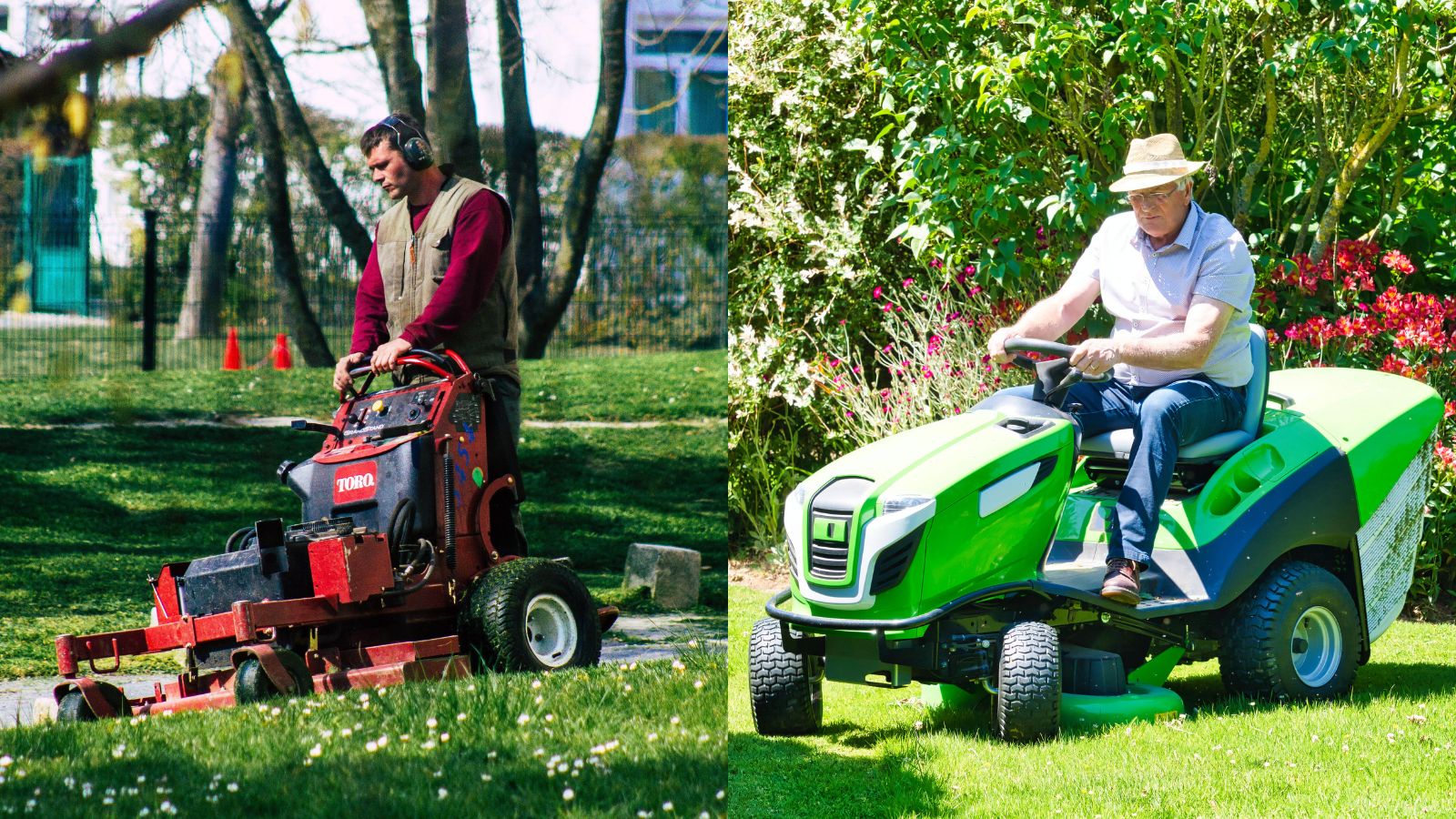 Standing mowers vs riding mowers – a mowing expert reveals which is best
Standing mowers vs riding mowers – a mowing expert reveals which is bestStanding mowers vs riding mowers is a heated debate among landscapers. I spoke to a landscaping expert to find out if standing mowers really are the best
By Alex David Published
-
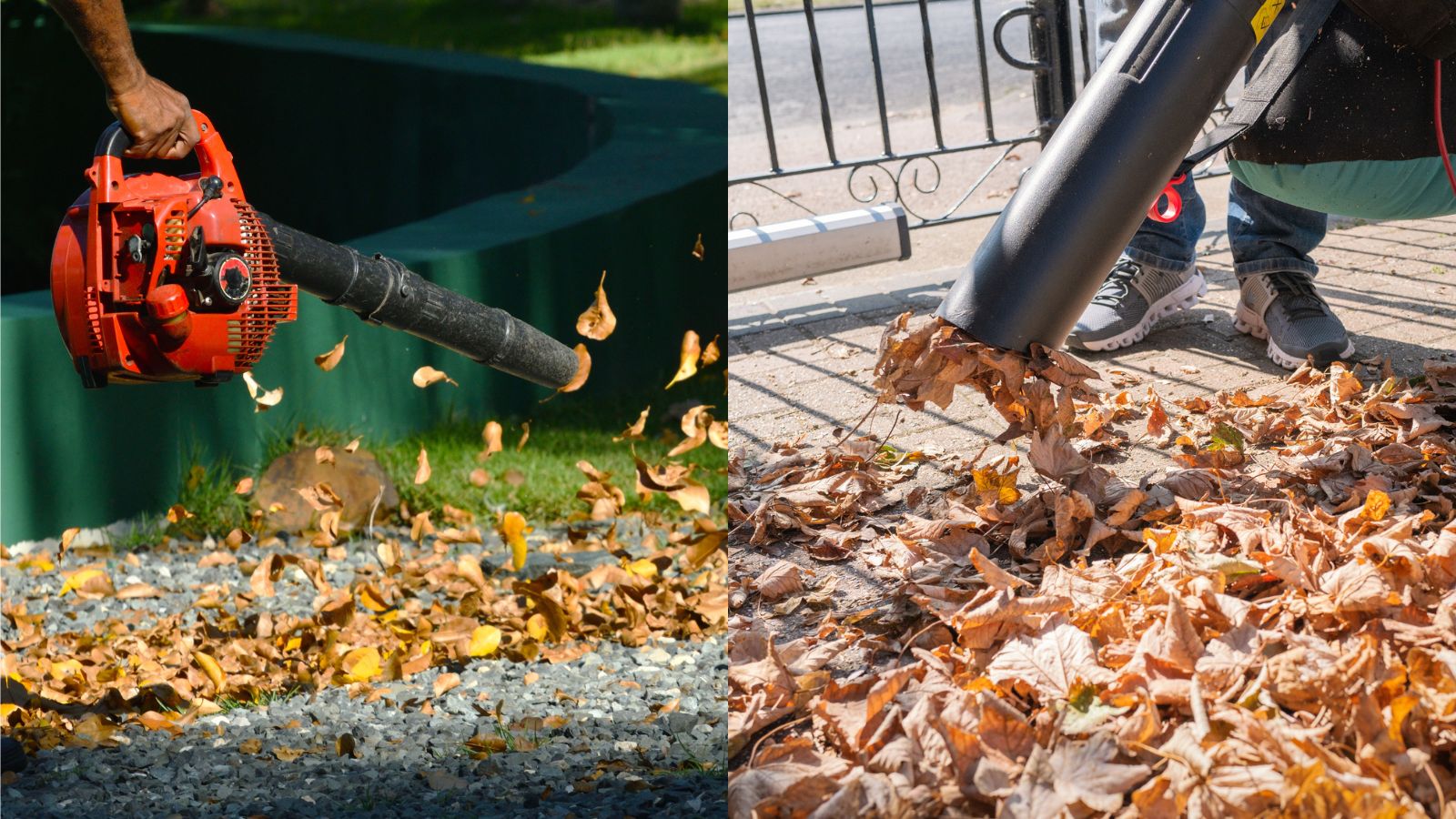 Leaf blowers vs leaf vacuums – which is best for your yard, and should you bother with either?
Leaf blowers vs leaf vacuums – which is best for your yard, and should you bother with either?It's not obvious which is best between leaf blowers v leaf vaccums. As a product tester, this is all you need to know about these controversial yard tools
By Alex David Published
-
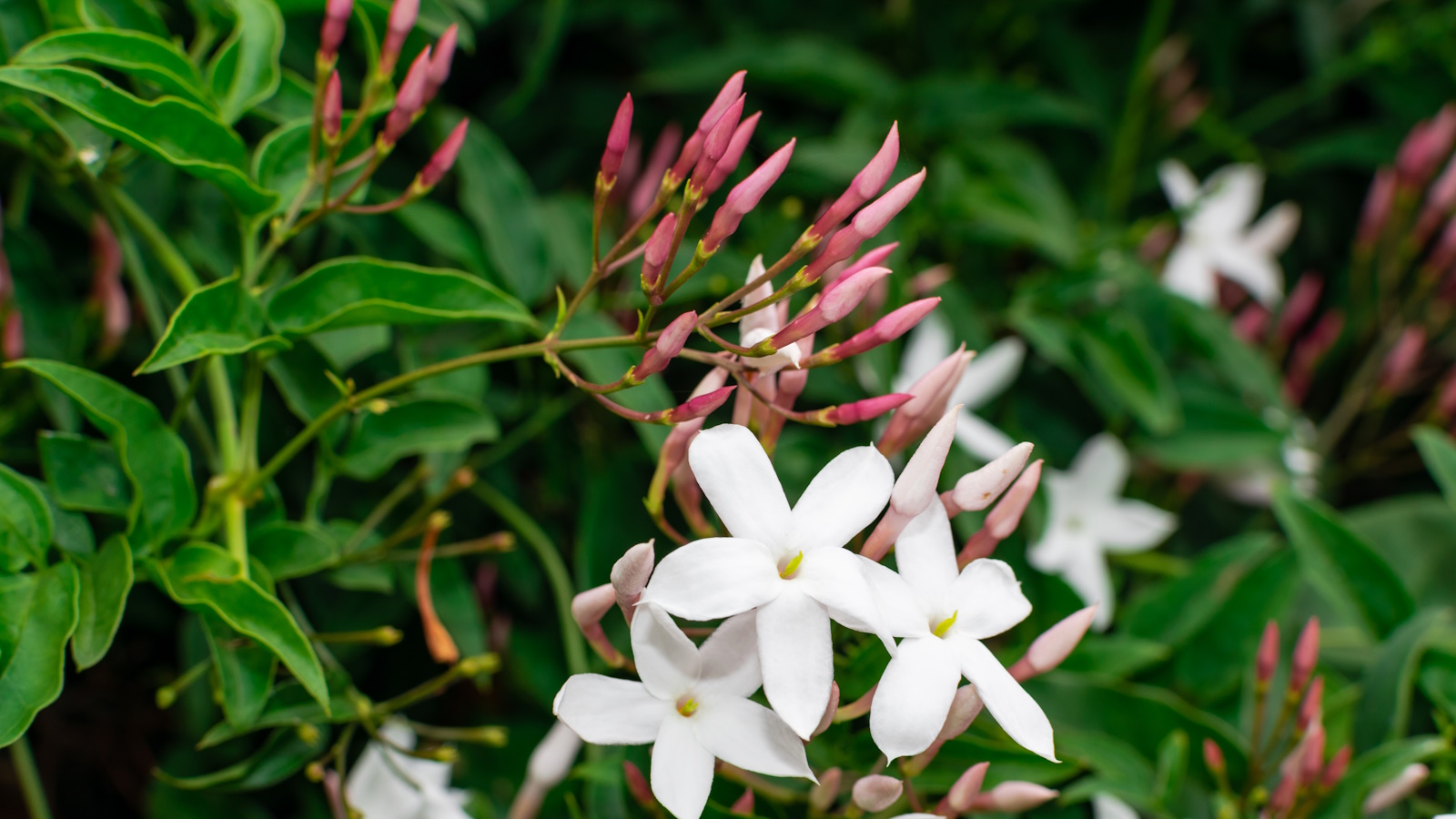 Pruning jasmine in late summer will ensure your plants bloom better than ever next year
Pruning jasmine in late summer will ensure your plants bloom better than ever next yearTiming is critical when pruning summer-flowering climbers
By Thomas Rutter Published
-
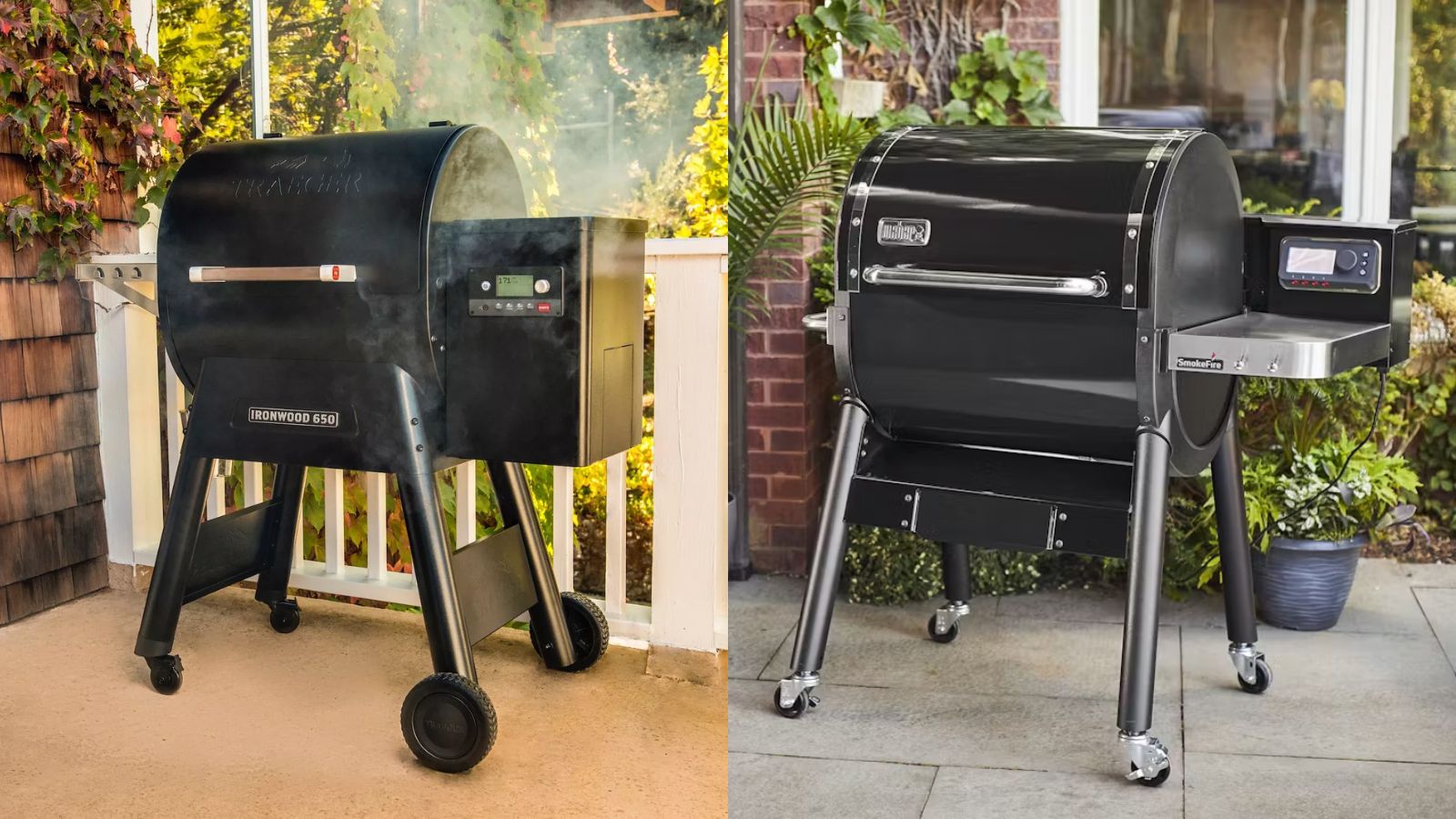 Weber vs Traeger – which pellet grill should I buy? Advice from a product tester
Weber vs Traeger – which pellet grill should I buy? Advice from a product testerThey're two titans of the grilling game, but who comes out on top between Weber vs Traeger? As a product tester, this is all you need to know about the brands
By Alex David Published
-
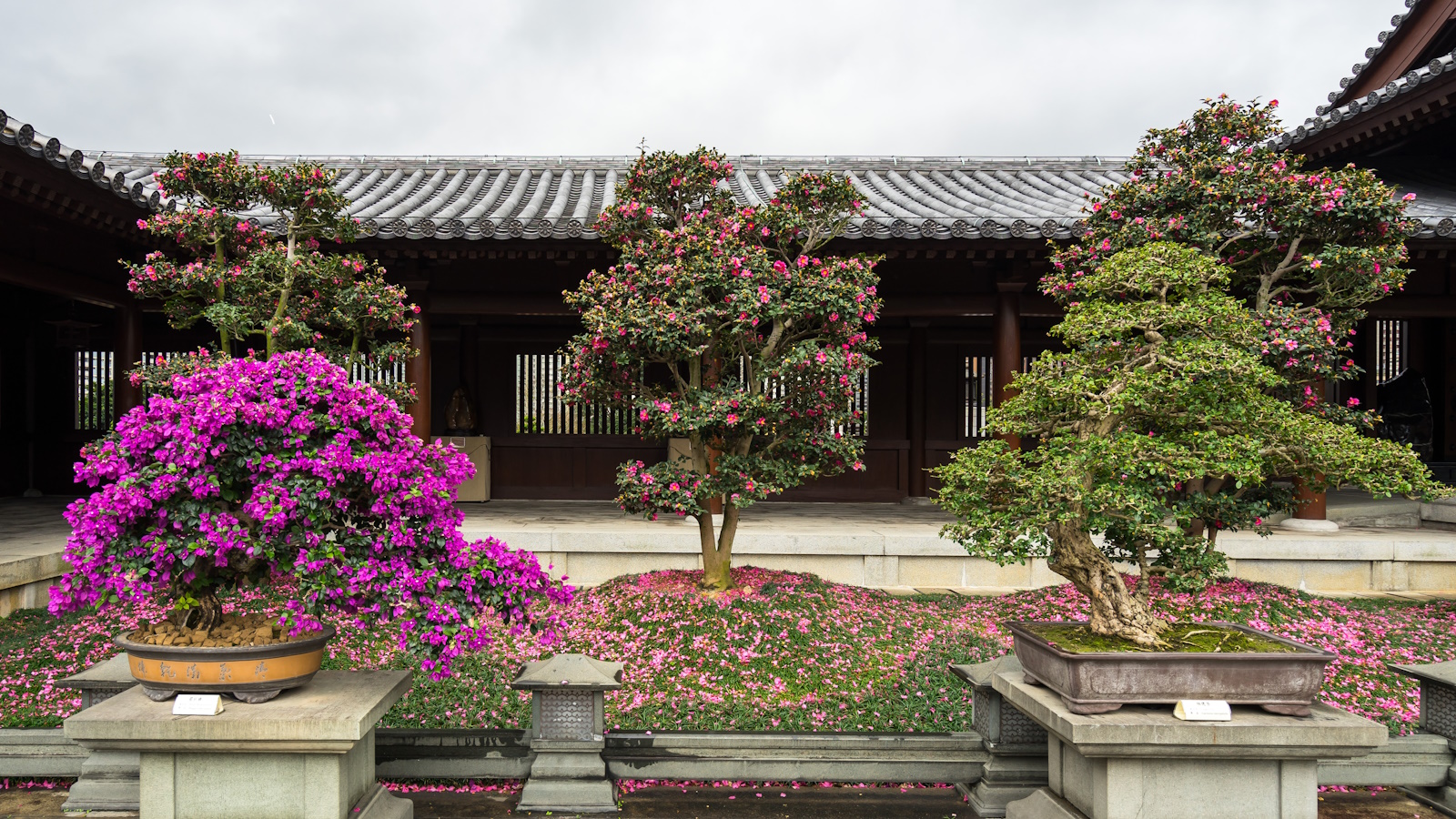 Bougainvillea in miniature – with a little patience, anyone can grow these vibrant plants in bonsai form
Bougainvillea in miniature – with a little patience, anyone can grow these vibrant plants in bonsai formGrowing bougainvillea bonsai trees can add impact to even the smallest of spaces
By Thomas Rutter Published
-
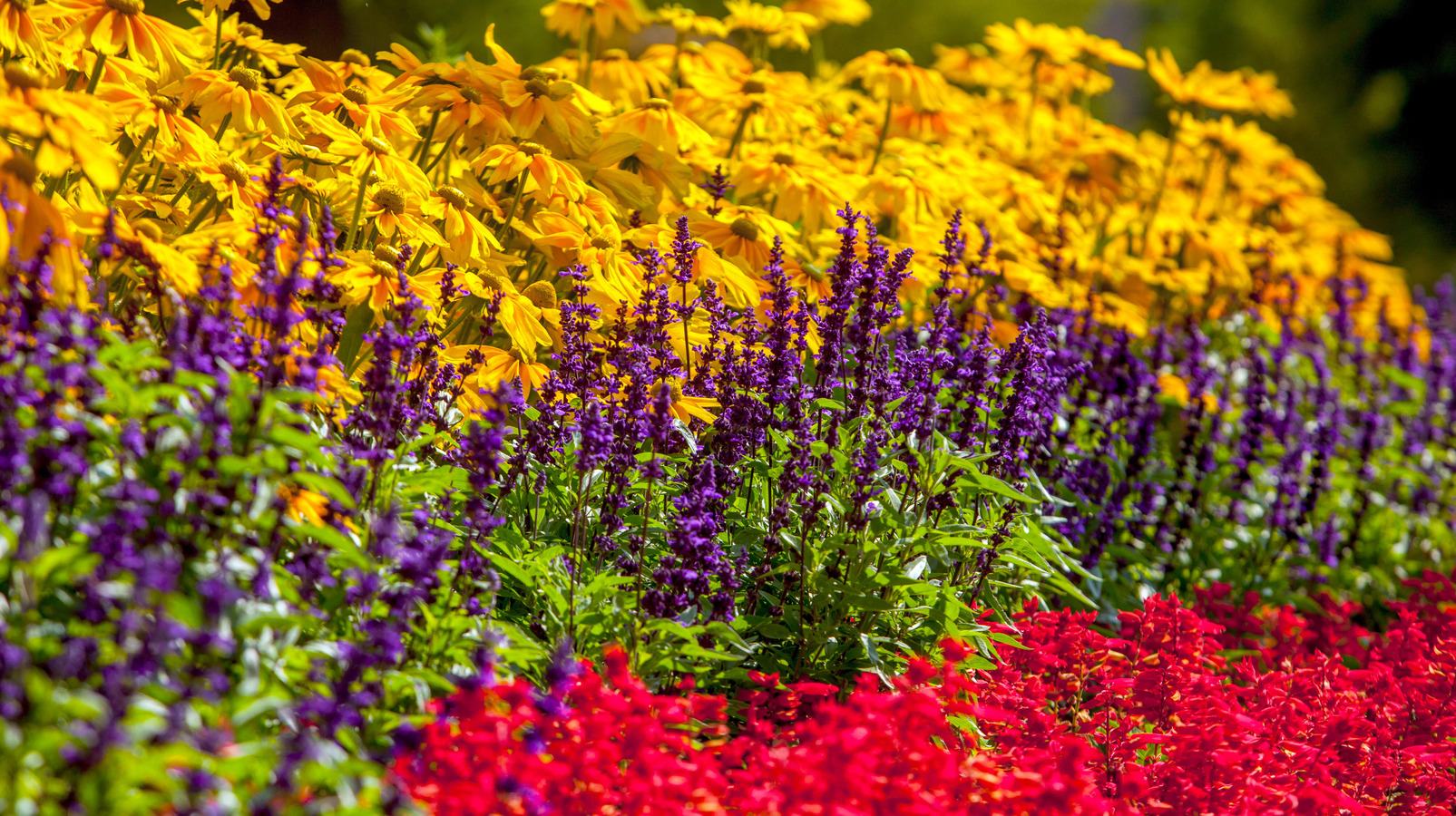 10 low maintenance, drought tolerant plants – for a beautiful and undemanding landscape
10 low maintenance, drought tolerant plants – for a beautiful and undemanding landscapeExpert plant picks for a thriving dry garden, that will make life easier and more colorful
By Jacky Parker Published
-
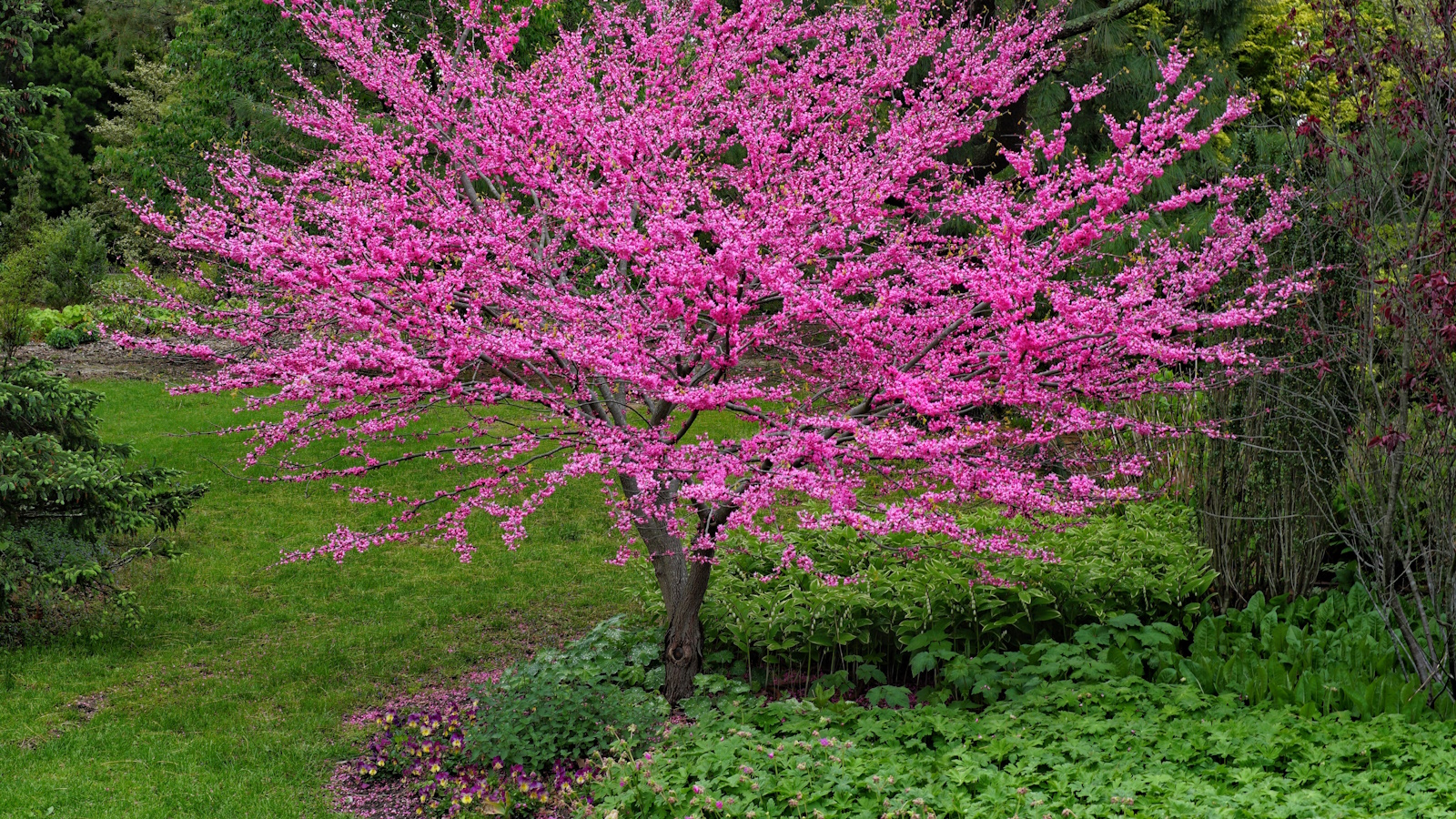 How to grow eastern redbuds – the cherished native tree with striking spring blooms
How to grow eastern redbuds – the cherished native tree with striking spring bloomsAdaptable and reliable, eastern redbuds are tough trees that will not disappoint
By Thomas Rutter Published